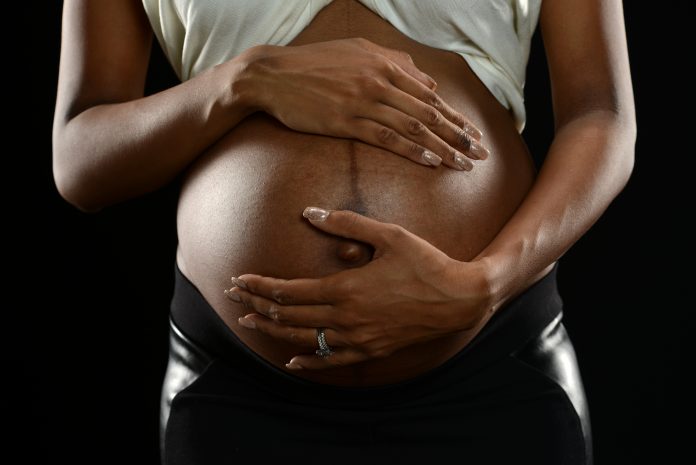A new report on maternal care reveals statistics documenting the increased danger Black women face during pregnancy and childbirth in the UK
From 2016 onwards MBRRACE-UK has been releasing reports on the maternal morbidity rates, shedding light on the racial disparities that exist in maternal healthcare. The 2020 report ‘Enquiries into Maternal deaths and morbidity’ revealed that Black women are statistically four times more likely to die during childbirth than white women in the UK.
Black women statistically four times more likely to die during childbirth
The report also showed how women from Asian ethnic backgrounds were still three times more likely to die due to complications than white women. As the recent pandemic has shown, it is not only within maternal care where Black women appear to be at a higher risk than other races.
These differences in maternal death rates are extreme and need to be considered within a wider context of race and inequality in the UK health system.
Why are Black mothers at more risk of dying?
MBRRACE-UK pointed out the disparities in maternal outcome statistics across a number of demographic factors, such as race, geography and socio-economic positioning. However, there appears to be a clear racial barrier between suitable healthcare and Black women, with reports of Black women being ignored or told they were overreacting when complaining of pain.
The last few years have escalated both public and governmental interest in the apparent inequality in maternal healthcare. In 2020, we saw a public response to the glaring statistics and a call for answers from both the NHS and the Government.
The launch of a public petition titled ‘Improve maternal mortality rates and healthcare for Black women in the UK’ gained over 187,000 signatures – prompting it to be debated in parliament during April 2021. The debate resulted in MPs speaking of the extreme racial inequalities that had come to light within maternal healthcare.
Labour MP Janet Daby commented: “This year’s coronavirus pandemic has brought this disparity even more starkly.”
She continued on to argue that the current racial imbalance in the National Health Service is limiting children’s chances before they are even born.
With the government-commissioned report into racism firmly suggesting that institutional or structural forms of racism do not exist in the UK, Labour MP Naz Shah commented: “Why if there is no racism, do those disparities exist?”
‘Why if there is not racism, do those disparities exist?’
COVID-19 mortality rates were shown to be 13 times higher in pregnant mothers than people of similar ages. The MBRRACE-UK report noted that governments had made the racial disparity in COVID-19 case outcomes an “international priority”, therefore is it not time the same is done when concerning the racial inequality in maternal healthcare.
Dr Ria Clark sat down with BBC to talk about maternal health and her views on the racial inequality within the maternal health system. Within her interview she addressed the issue that Black women are more likely to be ignored within healthcare, pointing out that “Black women may not feel that they will be taken seriously, which might make them less likely to disclose how they are feeling”.
With Black women being overlooked and ignored, the danger surrounding them during childbirth increases exponentially. According to Clark, many Black pregnant women feel as though their pain gets overlooked or disregarded in the medical sphere.
Who is protecting Black Women within the maternal care sphere?
Birthrights is a non-profit charity whose mission is “to ensure everyone receives the respect and dignity they deserve in pregnancy and childbirth” and become a voice that influences maternal care and government services. The non-profit launched an inquiry into ‘racial injustice in maternity care’ calling it a human rights inquiry after the release of the MBRRACE-UK report revealed how severe the racial gap is in healthcare even in the 21st Century.
Amy Gibbs, Chief Executive of Birthrights commented: “We look forward to sharing the findings of our inquiry with government and the NHS, to ensure action on racial inequities is shaped by lived experience and a rights-respecting, anti-racist approach.”
What is next for maternal care in the UK?
With non-significant decreases continuing from the years 2012-2017 in the maternal death rate, the report implies that there needs to be an increased effort into reducing maternal deaths for women across the UK. If there is a continued focus on regulations and inquiries from organisations such as MBRRACE-UK and Birthrights, there can be a reduction in maternal deaths if changes are implemented by the Health Department.
These organisations are imperative in bringing these disparities to light and holding the government accountable for the inequalities that exist in healthcare for people of different races.
The Select Committee for Health and Social Care released a publication exploring “the safety of maternity services in England”. While suggesting that the UK Government should provide safe and personalised care for all mothers and babies, the proposed Long term plan also touched on race via a “commitment for 75% of women from BAME background to receive continuity of care from 2024”.
If the above policy measure was implemented by the Government, it would go a long way toward improving the care of women across the UK.
However, there still needs to be a separate inquiry into the consistent racial biases within healthcare that are currently placing Black women in danger. Whether it is being afraid to speak up in a medical setting or being ignored, the statistics are showing devastating results for Black women in particular.
Action needs to be taken by both the government and the NHS to eradicate the racial biases that MBRRACE-UK revealed still exist for Black women. As Labour MP Janet Daby said: “We must address systemic biases that impact on the care we provide for ethnic minority women”.











